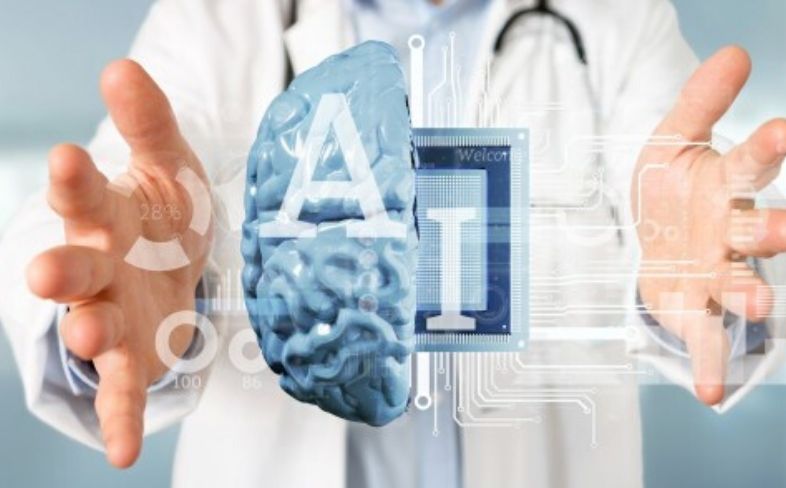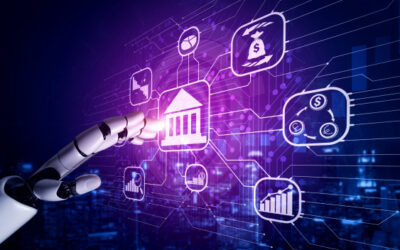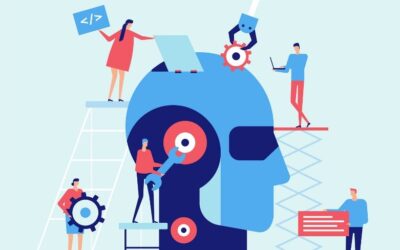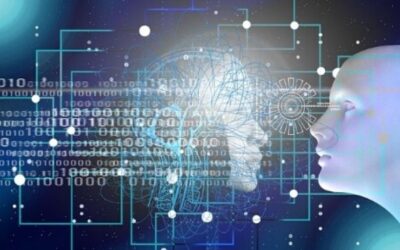Will AI Be Useful In Diagnosing Diseases & Designing Drugs?
Absolutely, Yes! Artificial Intelligence (AI) is rapidly expanding in the healthcare sector. The demand for artificial intelligence in the medical field is growing than ever before.
AI has already entered into the global healthcare industry. The healthcare sector is an open area to do more innovations. The sector is witnessing a continuous digital transformation. The healthcare service providers are using AI tools and devices to improve the level of patient care. In addition, with a focus on unmet diseases, the sector continues to advance in developing novel drugs and new treatments using AI and ML techniques.
Not only for diagnosing a patient diseases, but AI in medical field automates the specific care paths to meet the growing needs of elder patients. The factors such as increasing demand for precision medicine and inventions for improving mental abilities drive the growth of AI in the healthcare sector.
Smart digital assistants, health monitoring tools, care robotics, smart scanners, and smart wearable gadgets are few of the AI applications for healthcare providers. These innovative apps are driving the demand for AI technology in the healthcare sector. In addition, AI has a strong presence in the design and development of medical imaging devices, drug discovery tools, and end-to-end operations management systems.
What is AI in Medicine?
AI is a branch of computer science that utilizes machine learning, deep learning, and natural language processing algorithms to provide solutions without human interaction. As AI analyzes valuable patterns in input data, it is widely used for detecting and predicting outcomes in medical situations.
Currently, this AI technology is applying in every medical field ranged from drug discovery and patient monitoring to detecting diseases and providing personalized treatments. AI can be used in many ways in medicine. For instance:
- Annotator for clinical data: Over 80% of healthcare data is unstructured. AI using ML algorithms can interpret both structured and unstructured data. As AI processes natural language, it can read clinical text and identify, categorize, and code medical and social concepts.
- Insights into patient data: AI machines provide valuable insights from patients’ historical medical reports. Thus, accurate treatment can be provided to patients.
- Patient similarity: AI identifies the clinical similarity between patients. This feature allows researchers to create dynamic patient groups, rather than static patient cohorts.
Now, we’ll discuss how AI is used to detect diseases and discover drugs.
1. Artificial Intelligence For Drug Discovery
The drug development industry is renewing with AI and ML. These advanced technologies help drug manufacturers in developing personalized and cost-effective medicines.
One of the significant trends in the drug discovery industry is that the pharma companies are collaborating with AI companies to explore new ways of drug development. A German pharmaceutical company Bayer is collaborating with tech companies for creating software which identifies complex conditions and discovers new drugs to treat those diseases. The integration of AI technology with manufacturing abilities ensure efficient health treatments.
Not only Bayer, every pharma company is accelerating their healthcare services using AI. For instance:
- Pfizer, an international pharma company, is using IBM Watson to develop immuno-oncology drugs
- Sanofi, a French multinational pharmaceutical company, has signed a deal with the UK start-up, Exscientia Ltd, to search for metabolic-disease therapies
- Roche’s subsidiary Genentech is using GNS Healthcare’s AI systems to drive innovations in cancer treatments
Multiple biggest biopharma companies also have similar partnerships with AI companies. New startups are also tackling AI treatment routes for harmful diseases. According to a market survey, over 150 startup companies are using AI in drug discovery. Most of these startups are partnering with the pharma groups to design novel drugs, especially for cancer treatments.
On the other hand, sharing medical data is another emerging trend in drug discovery. Using AI and ML, the pharma companies are automating molecule design to faster the drug development process.
2. AI in Healthcare For Detecting Diseases
Artificial Intelligence is being used to diagnose diseases of patients. It helps healthcare providers in detecting diseases accurately. Few diseases are difficult to diagnose, But AI diagnosis apps and virtual assistants help physicians to provide treatment at the right time. Medical diagnosis via Machine Learning (ML) and deep learning algorithms, machines can deliver insights into the patient’s data. This will assist doctors in checking and analyzing the severity level of the disease.
The below are few of the applications of Artificial intelligence in medicine:
• AI in Medical Diagnosis
Artificial Intelligence in medical diagnosis helps pathologists and radiologists in making informed clinical decisions. Using deep learning algorithms, AI devices help healthcare experts in providing a proper diagnosis based on medical imaging. Have a look at the top five (5) uses of AI in medical imaging:
- Detecting the risk of cardiovascular diseases
- Identifying tumors
- Identifying fractures and other soft tissue injuries
- For detecting neurological diseases
- Analyzing thoracic spinal cord injuries
AI machines using deep learning can scan thousands of medical images and detect patterns of various diseases. This feature of AI technologies allows healthcare providers to diagnose health/medical conditions accurately.
• Artificial Intelligence Diagnosis Systems
According to researchers, AI can accurately detect diseases. The researchers proved that artificial neural networks identify various oncology diseases to eye diseases. Many researchers are using AI’s deep learning technology to train algorithms for recognizing cancer tissues. Similarly, AI wearables detect heart diseases in early stages. Thus, AI with IoT & cloud allows physicians to monitor their patient’s conditions efficiently.
• Virtual Assistants
AI offers Telemedicine Service. It is a virtual service provided to physicians. Artificial Intelligence helps doctors to provide their services for patients who are in remote locations. With this telemedicine service, AI-based medical devices like robots virtually treat patients in hospitals.
• AI offers Best Clinical Decisions
Artificial Intelligence based medical diagnosis machines use predictive analytics to provide the best clinical decisions. These machines offer valuable insights and predict the risk level of diseases. This is a significant advantage of using AI in the healthcare sector.
• AI Reduces Human Errors
AI devices avoid human errors as it automates the entire diagnosing process. It helps physicians to reduce the risk rate of patients who undergo the operation. Thus, AI in healthcare acts like the best assistant to monitor stressful situations.
The above are only a few of the essential advantages of AI in healthcare. AI to offer many breakthroughs in the next coming years.
Multiple AI-based mobile apps for healthcare are existing in the market. AI apps for healthcare ranges from managing patient records and patient engagement to care planning and prescription remainder. USM Business Systems is the best AI service and solution provider, specialized in the design and development of AI mobility solutions for healthcare clients.
How to diagnose patient’s health condition using AI?
No waiting for hours for diagnosing health issues. AI is being used to alter the ways of traditional medical diagnosis methods. Artificial intelligence based Diagnostic System assist physicians in discovering diseases.
These AI-driven systems use deep learning techniques for accurate diagnosis of a disease. In general, these intelligent systems trained with both image and disease symptoms data. Then, the systems apply specific techniques to detect patterns and deliver insights into data. The system is also reliant on the quality of the input data to ensure diagnosis accuracy.
Will AI replace doctors?
Now, by observing the above benefits of artificial intelligence in the healthcare sector, a question will strike in our mind that will AI replace doctors?
AI will not replace physicians, but, it will change the way of treatment provided by them. As intelligent machines can deliver results accurately, AI helps doctors to provide best-in-class healthcare services.



